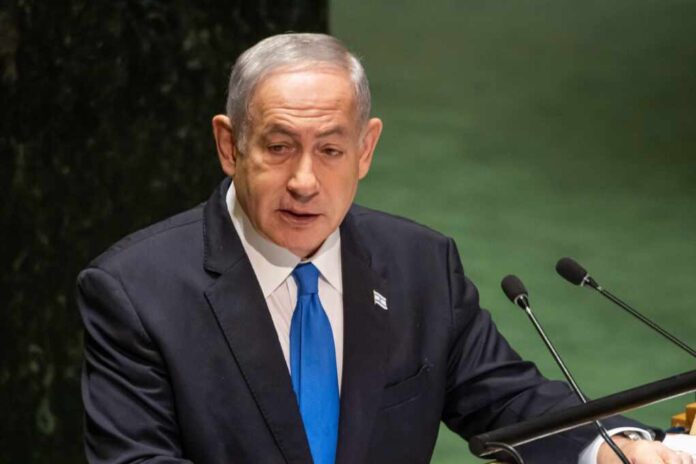
Israeli Prime Minister Benjamin Netanyahu has refused to halt military operations against Hamas despite ceasefire talks stalling, vowing to continue fighting until all hostages are returned and the terrorist group is destroyed.
At a Glance
- Netanyahu vowed not to surrender to Hamas after the group rejected a temporary truce proposal
- The Israeli leader compared Hamas’ October attacks to the worst massacre of Jews since the Holocaust
- Hamas demands include maintaining power, ending the war, Israeli withdrawal, and billions in Gaza reconstruction aid
- Netanyahu warned that conceding to Hamas would encourage more kidnappings and attacks
- Israeli military operations continue with airstrikes targeting approximately 40 locations across Gaza
Netanyahu’s Unwavering Stance Against Hamas
In a televised address that highlighted his determination, Prime Minister Benjamin Netanyahu made it clear that Israel will not bow to Hamas’ demands following the terrorist group’s rejection of a temporary ceasefire proposal.
Netanyahu emphasized that surrendering to the perpetrators of “the worst massacre against Jews since the Holocaust” was not an option. His firm position comes at a critical time when diplomatic efforts to end the conflict have reached a significant impasse, with Hamas demanding conditions that Israel considers unacceptable.
The Israeli leader specifically criticized Hamas’ demands, which include maintaining their power in Gaza, forcing an Israeli withdrawal, ending the war on their terms, and receiving substantial financial aid for Gaza’s reconstruction.
Netanyahu characterized these as dangerous concessions that would only embolden the terrorist organization and create an even greater threat to Israel’s security in the future. His administration maintains that military pressure is necessary alongside diplomatic efforts to achieve Israel’s objectives.
Israeli PM Netanyahu vows to continue war against Hamas after terrorists reject temporary cease-fire, hostage deal https://t.co/9Z4yGmKIim pic.twitter.com/9s6HYQuLND
— New York Post (@nypost) April 19, 2025
The Hostage Crisis and Military Operations
At the heart of Netanyahu’s position is the fate of 59 Israeli hostages still held by Hamas, with intelligence suggesting that only 24 may still be alive. The Israeli government has made their safe return a non-negotiable condition for any ceasefire agreement.
Hamas recently released a propaganda video featuring Israeli hostage Elkana Bohbot, further intensifying public pressure on Netanyahu’s government to secure the release of all captives. The emotional toll on Israeli society remains profound as families continue to wait for news of their loved ones.
Netanyahu has ordered intensified military operations following Hamas’ rejection of the ceasefire proposal. These operations have targeted approximately 40 locations across the Gaza Strip in recent days. The ongoing conflict has resulted in continued casualties on both sides, including the death of an Israeli soldier and injuries to five others during a Hamas attack in northern Gaza. The Israeli military maintains that these operations are necessary to degrade Hamas’ capabilities and create the conditions for the hostages’ release.
In other words, Hamas makes it clear: They reject the Israeli proposal – they will not agree to any deal unless it includes a prior agreement to end the war https://t.co/nL9jkl07Tl
— Amichai Stein (@AmichaiStein1) April 17, 2025
A “War of Rebirth” and Long-term Security
Netanyahu has framed the conflict as a “war of rebirth” for Israel, emphasizing that the nation’s security depends on achieving decisive objectives rather than accepting compromises that could leave Hamas intact. He warned that capitulating to terror-driven demands would only incentivize future kidnappings and attacks.
This position reflects his government’s determination to fundamentally change the security situation rather than return to the status quo that existed before October 7th, when Hamas launched its deadly attack on Israeli civilians.
While international pressure for a ceasefire continues to mount, Netanyahu’s administration remains committed to its dual-track approach of military and diplomatic pressure. The Prime Minister insists that any resolution must include the complete dismantling of Hamas as a military and governing force in Gaza, along with the unconditional release of all hostages. This stance has generated both support and criticism within Israel, where some argue for prioritizing the immediate return of hostages while others back Netanyahu’s more comprehensive security objectives.

























